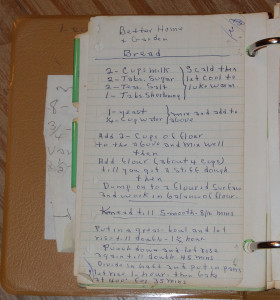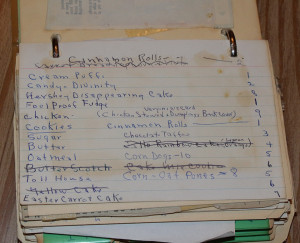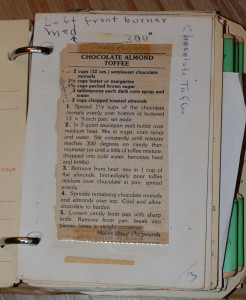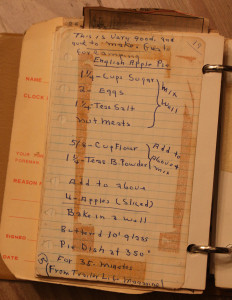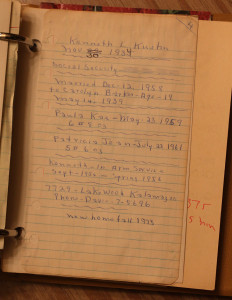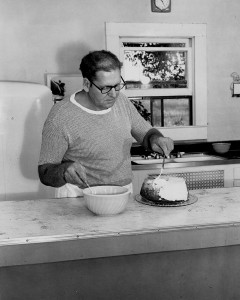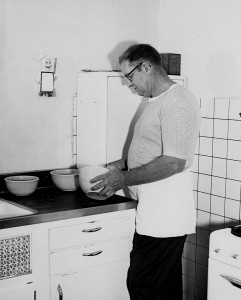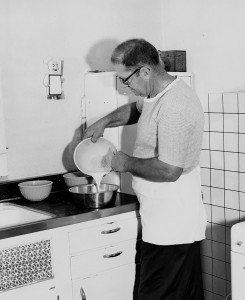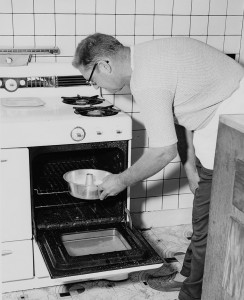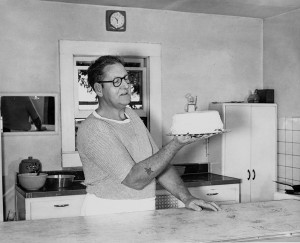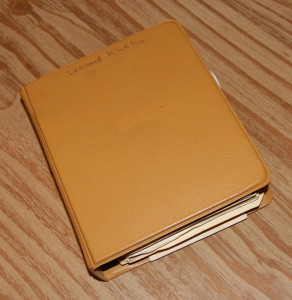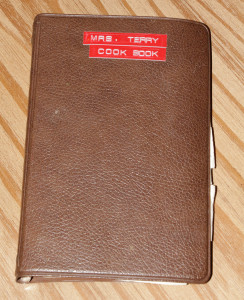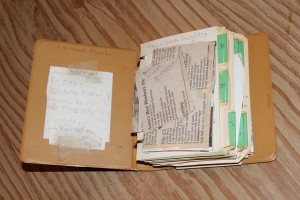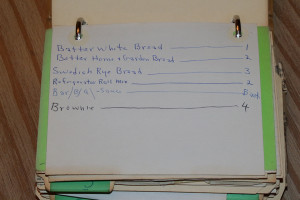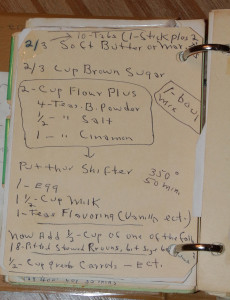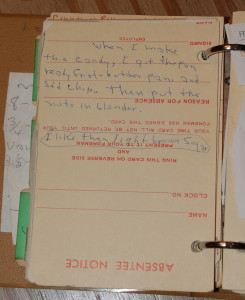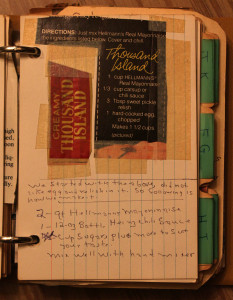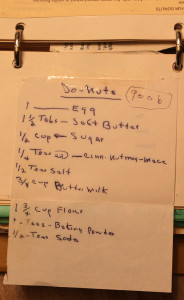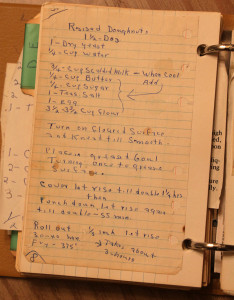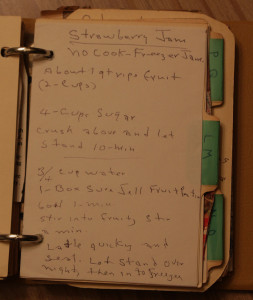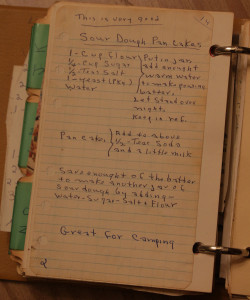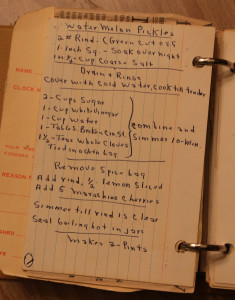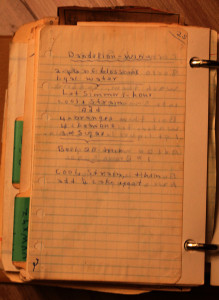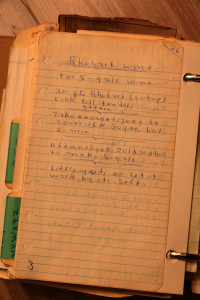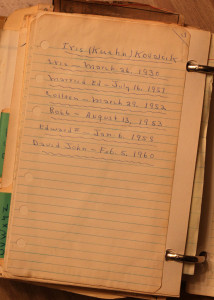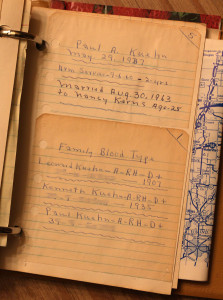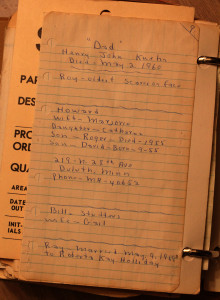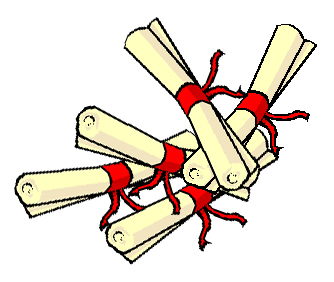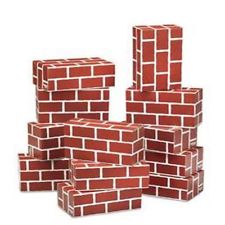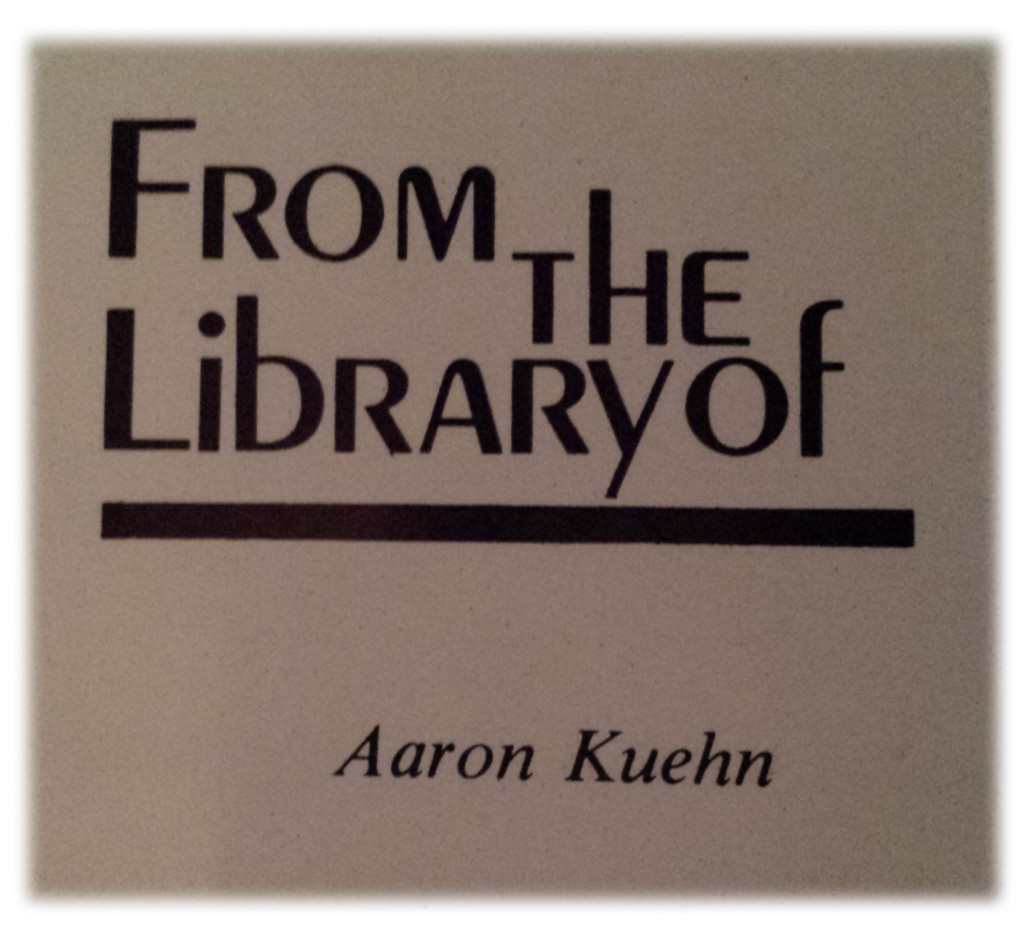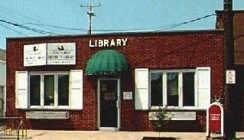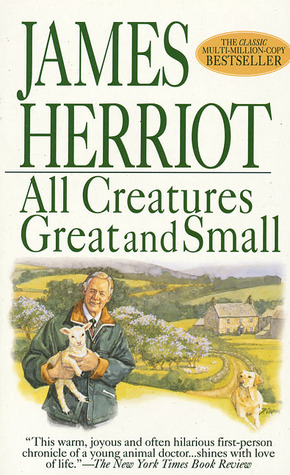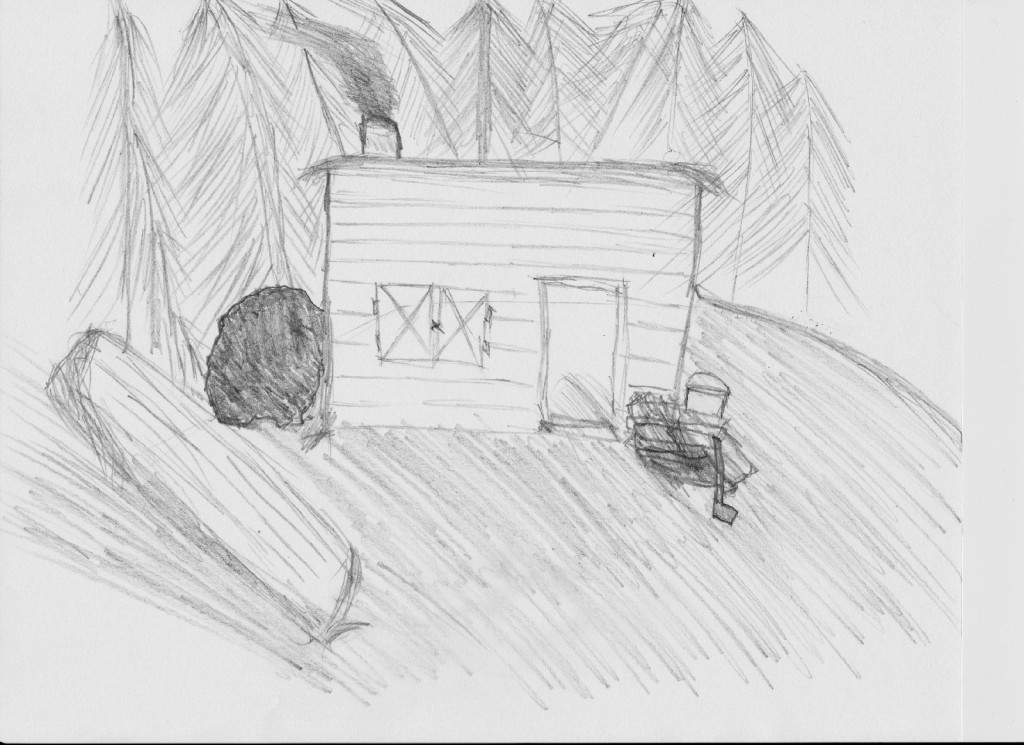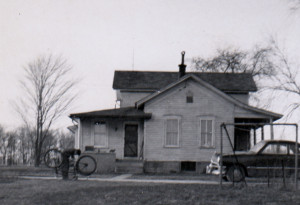I had a mentor and his name was Dave Anderson. While he had a common name, he was an uncommon man.
Dave hired me at the Kalamazoo Gazette newspaper in the mid-1980s. He had spent most of his career as a typesetter/compositor. When computerized typesetting, or cold type, came on the scene Dave, with his curiosity and expertise made himself a key player in the burgeoning technology side of the newspaper business. Back then it was called “Systems”, what we now call I.T.
I had long wanted to work at the Kalamazoo Gazette, my local newspaper. I grew up in a rural area and had a carrier who would toss rolled newspapers from his pickup while speeding down the road. Later we graduated to having a plastic tube to receive our Gazette, which arrived in much better shape having not been thrown across our rough or snowy Michigan yard.
Even as a youngster I was fascinated by the newspaper. When I was old enough to work I applied for several jobs at the paper. I was ignored sometimes, denied others and at least once very constructively turned away by the editor, Jim Mosby. I was not deterred because my desire was so strong.
One of the Gazette’s executives, Carl Gilbert, was our neighbor and he paid a visit to my sixth-grade classroom. He showed us pasted-up pages, page negatives, printing plates and other gear from the world of newspaper production. Who knew that fewer than 10 years after that classroom visit, I would actually be shooting pages, burning plates, hollering “REPLATE!” to the pressroom and becoming familiar with many jobs within the newspaper.
But it was after responding to a rather generic ad for “TYPIST” at the Gazette that I met up with Dave. Dave had only recently left his highly-respected and important position in the Systems department where he managed the computerized writing and typesetting system called Atex. His new role was as manager of a department called Production Services which comprised the people who set type for advertising, did paste up of display and classified ads and later the paste up of the editorial content.
Dave asked me in for an interview. Because he was new as a manager, his first few hires were done under the supervision of publisher Dan Ryan. Ryan was a WWII veteran, locally famous, stood nearly seven feet tall and was an imposing man. But Dan had one of the biggest hearts and I quickly respected and liked him. But when I went into his office that first time I was nervous, in disbelief and unprepared for what would follow.
On the way to the interview I had driven three blocks down a one-way street – the wrong way! Fortunately I had no accident or constabulary contact, but I was shaken, stirred and sweating.
I entered the Gazette’s front door and the receptionist called for Dave. I had a few moments to work off the nerves from my driving mistake and to put myself together for what was maybe my fourth job interview ever.
Dave took me to his tight and cluttered office just outside the climate-controlled computer room. He said only a few words and then we were called to Dan Ryan’s office. Once in Dan’s office he and Dave exchanged sports banter. Not knowing anything about sports, that immediately made me feel like I was on the outside of something. Then they talked about a display ad that had run upside down in that day’s paper. Dan showed the page and turned to me to say “Some advertisers would pay extra to run their ad upside down. We don’t do that.”
Dan asked Dave if he knew who’d made the mistake. Dave chuckled and mentioned the name of the woman who’d made the error (you know who you are!). Clearly both men lacked any sense of surprise over the name of the culprit. Dan said “You made sure she knows not to do this again?” Dave said “Yes.” And that was the end of it.
Then the “interview” turned to me. Dan asked about my parents: where they were from and how they made their living. That was it. Then he said “Well, we’d like to have you join our family. Would you like to join us, starting tomorrow?”
I accepted and was on my way. I’ve always wondered who really hired me, Dave or Dan. When I left the building at 401 S. Burdick Street, I wasn’t entirely sure I’d been hired! I may have made a one-way-street error going home as well, but I don’t remember a thing.
Dave and I rapidly formed a bond. I was a very shy 19-year-old college student and he was a late-50s divorced Korean Era veteran and well-known industry expert. What did we have in common? A love of computer keyboards along with fast input speeds and typography. But we had an important friendship and he mentored me at some important forks in the road.
I’m fairly sure he made no conscious effort to be my mentor and he probably would have been surprised to know that I viewed him that way. I knew at the time that he was playing a pivotal role in my life, but it took several years before I gained enough wisdom to realize the full import of it.
In high school and early college I was driven to have a writing career. I was also very interested in politics and international relations. I dreamt of writing books, newspaper columns, doing political reporting and the like. I was working on degrees in English and Political Science at the time.
I never made it a secret that my goal was to work in the newsroom. My initial role as a typesetter was to be a stepping stone to a writing career. That’s how I saw it.
But Dave, my boss, friend and mentor saw something. Some of his best friends were writers and editors. And he’d spent 40 years in the newspaper business so he’d seen people come and go. But beyond that, Dave was a people person. He loved people, he wanted to know them, what made them tick, where they were from and where they were going. All of that led him to talk to me one day about my career plans.
It was in an informal setting during the early hours of a morning. I was cutting cold type coming out of automated film processors. The type later would be pasted up into news stories for that day’s newspaper. Dave, coffee cup in hand, made the casual remark that he didn’t think a job as a newspaper reporter was a good fit for me. He felt that I was quickly and easily grasping the technological side of the print production business and that maybe I didn’t have a true understanding of what it was like to write for a job.
Now in many situations getting “feedback” like that would be hard to take. One might resist it as having their parade rained on. Others may have seen an ulterior motive. But with Dave I didn’t have those kinds of thoughts. He was too sincere and well-meaning for me to consider that he didn’t have, at least in his mind, a valid point.
He went on to tell me that writing for a living often meant writing what someone else told you to write. And writing to a certain length. And in a certain way. And to have your words and ideas edited by others. He said he thought I was a better fit for the technological side of the business.
We talked it out and I was dubious. I had spent a fair amount of time pursuing a writing education as well as learning about politics so that I could cover it intelligently. Nothing he said was news to me, but he laid it out for me in a way that really preoccupied my mind with “what ifs.”
That was Dave being my mentor. Maybe it was because we had such a good relationship that he was able to so frankly talk to me about this. I don’t know. But what came next at first thrilled me and later put a significant scare into me.
A few days after that conversation Dave again brought up the topic. He said that he had spoken to Mary Kramer, the Metro editor (who later went on to be the publisher of Crain’s Detroit Business), who had agreed to let me shadow her for a day. I worked for Dave and he was going to pay me my day’s pay to sit with Mary. I was so excited at the opportunity. I still had in mind Dave’s earlier thoughts that writing wasn’t where I belonged, but I was still very confident in my education and career direction and saw this as an enormous opportunity.
I already knew Mary through my role in the Production Services department. Mary was a well-respected senior member of newsroom management and a very and open person. She worked with reporters, photographers, union printers, kids like me hired to replace union printers, political officials and angry readers. She did it all with great professionalism. She started each day early as did I and we’d often exchange minor chit-chat while getting our days started. I liked and respected her. I really thought this could lead to something.
I spent a day with her. It started early with a budget meeting for that day’s paper. She then worked on the page dummies for that day’s paper and the stories that would be used. That was followed by some editing of copy, reviewing proofs, another budget meeting, reviewing a pile of press releases, numerous phone calls, writing letters and more meetings. It was a full and busy day.
By that point I had been at the paper a couple of years and knew almost everyone and how the newsroom worked. But that day with Mary changed the course of my career. And my life. It was an oportunity that would not have happened without Dave stepping in. I didn’t ask for it. I didn’t think about it. But he did.
I saw and felt what it was like to be assigned a story that you had no interest whatsoever in. I saw reporter A get a story that reporter B would rather have written. I saw Mary lament a story that was too long…there just wasn’t room for all of it. I saw that reporters would put a lot of effort into a story and for a variety of reasons it never saw the light of day. I saw reporters turn over stories to an editor who would write a headline that they didn’t like. I saw editors strike sentences that were perfect, but simply didn’t fit.
It was eye-opening. Up until that point I had seen the role of a newspaper reporter as one with more autonomy, more of a seek-and-destroy attitude toward topics and issues. But Mary, at Dave’s urging, showed me the reality.
What I would come to know from Dave was that he guided me because he truly believed there was a better path that I wasn’t considering. He absolutely respected reporters and editors and didn’t have anything negative to say about their work nor their roles, but he could see it wasn’t a fit for me.
In addition he was seeing my personality of being shy and reserved and quiet. I of course knew that in my dream role of a reporter I’d have to talk to and interview people. That scared me. But my interest in doing the writing gave me imaginary courage. I think he realized that, at least at that point in my life, I wasn’t ready for such a thing.
The prodding by Dave and help from Mary brought me to a crossroads. It was a very painful decision point.
In terms of credit hours, I was about halfway done with college. Because I’d more or less gone to university part time, it was slow going. But now I was challenged to continue with my course of study or change it. Changing it would be expensive and dramatically increase my time to graduation.
And I wasn’t sure what I would change my majors to even if I decided that was best. The newspaper technology field has always been a hybrid of unique skills. Even today many in the I.T. department at newspapers worked their way up from other areas of the business. A programming or computer science education can be very important, but knowing about printing, typography, graphic design, writing, database management, customer management – those are all key areas that I.T. professionals live in. Back in the late ‘80s, breaking into the I.T., or “systems” department was tough. But after that day with Mary, and some introspection, I realized that working in I.T., specifically at a newspaper, was what I was meant to do.
Decades, many positions and a couple of employers later, I’m still in the newspaper technology field. I’ve never looked back nor regretted my decision to change paths. I ended up completing my degree in Political Science with a minor in English/Professional Writing because of the time I had already invested in it. And that, too, has served me well. On paper it may not make sense that I studied with an emphasis on constitutional law but spend my days writing JavaScript code, SQL queries and being a Scrum Master. But my formal education gave me many soft skills, and Dave gave me the foundation of the hard, technical skills I also needed.
Dave recognized the big change I was making and he supported me 100%. Once he knew that I was committed to the technology side of the business he helped to open doors to other opportunities, training and positions that allowed me to advance.
I worked with others who were at least equally if not more qualified for some roles. But Dave pushed me and made a way for me.
I have always struggled with math. Dave did complex math in his head. And in those days in particular computerized typography required a fair amount of math and abstract visualization. For example, an advertiser might give you a hand-written list of furniture items for sale. How many columns would you need in their 3×12 ad in order to make that content appealing? That was after accounting for their logo, the border, their phone number, address and hours. What point size and leading would work? Does the text need some tracking adjustment to make it more readable? There were many variables. And those were the days before WYSIWIG: typesetting was text and codes. You didn’t see the result of your work until your code was burned onto photographic film. And Dave, through his mentoring and training, got me past my fear of math. Math is still hard for me and beyond balancing a checkbook I have to really work at it. But I’m not afraid of it like I once was. He made math practical for me in a way that no teacher ever had.
Another thing I learned from Dave was his attitude towards people. He accepted and was interested in all people. To my knowledge he never saw color nor religion nor ethnicity. He saw “folks.”
“Folks” was a word Dave used daily. I once asked him about that because he used it so much. He said it was a conscious decision, a generic way to refer to people, that got away from the male/female debate. It wasn’t men nor women, his nor her, it was “folks.”
Over the years Dave hired a lot of foreign exchange students from Western Michigan University, as well as recent immigrants. I’m not sure how many people realized that this was something he made a point of doing. Later when I was a manager of the Ad Creation department and would review resumes, I learned that Dave had a love of country that caused him to want to share it with people from less fortunate backgrounds. It was subtle, but Dave would often lobby for resumes from non-natives.
Dave was also a mentor to some of those folks from time to time. I remember one in particular, I believe his name was Shoga-David and I think he was from Africa. Shoga was a meek and quiet guy with very limited English. But Dave hired him and took him under his wing. Dave looked out for him and if anyone dared slight Shoga or deny him any opportunity, Dave quietly stepped in.
After Shoga graduated from the university and returned home, Dave kept up written correspondence with him while Shoga worked to set up a printing business in his home country. That’s just how generous and big a person Dave was. Dave shared Shoga-David’s letters with me, proud of Shoga-David’s success, happiness and new family. He gave in order to help other people become better, professionally and personally.
Looking back I realize that my relationship with Dave was unusual in some ways. Maybe it was due to my shyness or my age, but while we were good friends, we rarely did things together outside of work. But when we did they were special to me.
We took several business trips together. In fact, I had never flown on an airplane when in 1989 we spent a couple of weeks in Boston to be trained as system administrators for a new computerized typesetting system called Camex. Dave had been in the Air Force during the Korean War and his older brother was a pilot in WWII and Dave was a huge aviation buff. We sat side-by-side and he talked me through everything that was happing during our flight. I never told him that I was terrified but he knew and got me through that first flight. I enjoy flying and in fact years later got a student pilot’s license and started to learn to be a pilot (a topic for another blog).
We took a few road trips together to other newspapers that were owned by the same parent company. We both reveled in the opportunity to learn from what others were doing and to share the things we were doing that we thought were innovative. To this day if you notice an ad in a newspaper with a tiny number hidden in the ad’s border – that was our idea back in 1989. It was a way to hide an I.D. number for an ad so the advertiser could specifically refer to an ad that they wanted to use again later. We tried it out and it helped us, our advertisers and our sales team. We shared that with our counterparts in the Booth Newspapers chain and from there with our parent, Newhouse. More than 20 years later, you still see this in practice. I’d like to think we invented this idea that was made possible by the new typesetting technology that came along in the late ‘80s.
Dave and I worked on a mainframe computer system called Atex. At the time Atex was the premiere computerized typesetting and content-management system. It was developed in the late 1970s and was the computer system used by the New York Times, National Geographic and most major newspapers in the world. Dave was a recognized expert on the system. Even 15 years later, at another company, I mentioned that I’d been trained by Dave Anderson and that brought immediate head-nods of respect. I learned from one of the masters. He taught me not only how to set type but how to write custom programs (called “formats”) on the Atex system to automate and standardize the work of a typesetter.
Toward the end of my time at the Gazette, that background and education really paid off. By 1999 the world was in the grips of Y2K fears. The Atex system was known to not deal well with the Y2K change. Dave had retired, was travelling, diving the oceans, photographing WWII shipwrecks and living a full and active retirement and I was enjoying a good job in the systems department at the Gazette. But then I was contacted by a manager at The Virginian-Pilot newspaper in Norfolk, Virginia.
The Pilot was a very large newspaper whereas, at the time, the Gazette was considered a small- or medium-sized outfit. The Pilot had an Atex system as well, had a small but expert staff, but was coming up on Y2K and they wanted more depth…they wanted additional help. Most Atex experts were dead or retired, but the manager had heard about me. And that manager knew of Booth Newspapers (the Gazette’s immediate owners), and Dave Anderson. Long story short, I was made the proverbial offer I could not refuse. The Pilot offered me dramatically more salary, an end to regular night and weekend work, a regular daytime schedule, the opportunity to work on the one of the largest and most customized Atex systems and to be a key player in the Pilot’s move from 1980s technology to the latest in modern print production systems offered by Digital Technology International (later to become NEWSCYCLE Solutions, where I now work).
The move to the Pilot, and ten years later to DTI and then NEWSCYCLE Solutions is all because of Dave. Because he gave me direction. He was my friend. He saw in me things I didn’t see in myself.
I had accepted the Pilot’s offer and was tying up loose ends at the Gazette, getting my house listed for sale and getting myself ready for one of the biggest changes in my life. Sadly, at that time Dave lay in a hospital room at Borgess Medical Center in Kalamazoo. He had lung cancer and he was dying. He had only had about five years of retirement. I had been to his home a couple of times during his illness. Before he got sick we made one trip together to the Air Force Museum at Wright-Patterson Air Force Base in Ohio. We’d also spent a few hours looking over an amazing collection of slides that he’d shot while in the Air Force in Korea where he’d worked on the early development of Radar. But I wrongly thought that in his sickened state, he had bigger things on his mind than my career move.
Emphasis on wrongly.
I was at home one night, in between accepting the Pilot job offer and actually leaving, when I got a phone call. It was from Dave, in his hospital bed. He had a very weak voice at that point. He said “When were you going to tell me that you’re leaving, that you’re going to the big time?”
I was crushed. Because I’d crushed him! After he’d invested more than a decade in me, as a person and in my career, I didn’t share with him the story and the news. News that only came about because of his investment in me. News that showed him that he was right.
I could try to justify it several ways but they would be weak. The next day I went to the hospital to see him and tell him all of the details. He couldn’t even sit up in bed and he was weak and worn out. But he congratulated me a dozen times, asked a lot of questions, said how proud he was of me and wished me the best. I think we both knew we wouldn’t see each other again, his end was coming soon. But his last words to me were to be happy and do good work.
Dave died a few days later.
15 years ago this June, 2014, Dave Anderson died of lung cancer. He’d spent a career working at the Kalamazoo Gazette. He’d spent more than a decade making me a better person and guiding me toward a career that would make me happy. I saw him hold out a hand to numerous other people during that time as well.
15 years. I still remember the smell of his cologne, the stutter of his speech, his instant and easy laugh, his love of people, his understanding, his lack of judgment towards people, his dirty coffee cup and that ugly coconut he kept on his desk! Why on earth he was my friend I’ll never know.
But Dave, nearly 30 years after our first meeting, I still think about you. Many of the good parts of my personality, if there are any, are thanks to you and your example. Your example as a good, genuine, honest, interesting and caring person influenced me. Apart from my parents, Leonard and Charlene, you, sir, made me who I am today.
Thank you, my friend.

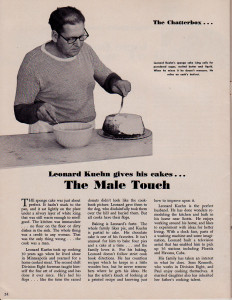 I venture to say that all parents leave some sort of impression on their children. Good or bad, if a parent is present, something gets passed along. My experience there is not unique.
I venture to say that all parents leave some sort of impression on their children. Good or bad, if a parent is present, something gets passed along. My experience there is not unique.